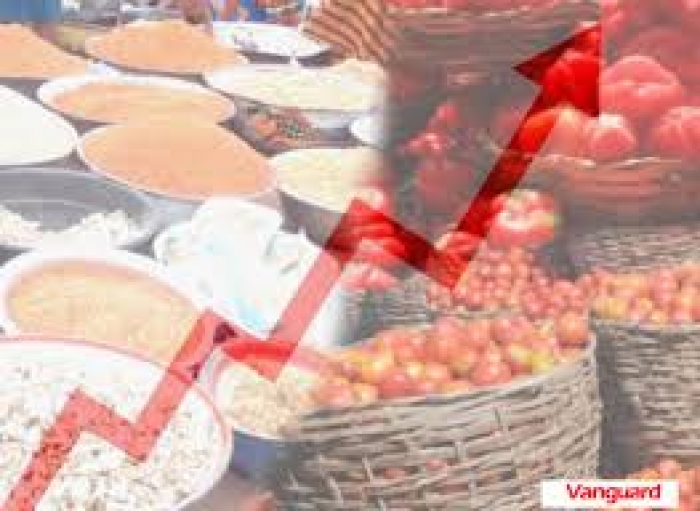According to a recent report from the National Bureau of Statistics (NBS), the prices of essential food items such as beans, tomatoes, and eggs have skyrocketed over the past year, with increases exceeding 200%.
The report, titled “Selected Food Price Watch for July 2024”, reveals that the average price of 1kg of brown beans (sold loose) reached N2,444.81 in July 2024. This represents a staggering 262.98% increase from N673.53 recorded in July 2023, and a 6.63% month-on-month rise from N2,292.76 in June 2024.
Similarly, the price of a dozen medium-sized agricultural eggs rose by 217%, from N1,006.64 in July 2023 to N1,935.69 in July 2024. On a month-on-month basis, the price increased by 12.11% from N1,935.69 in June 2024.
The price of 1kg of tomatoes also saw a significant jump, increasing by 203.57% year-on-year, from N557.96 in July 2023 to N1,693.83 in July 2024. However, on a month-on-month basis, the price decreased by 26.43% from N2,302.26 in June 2024.
The report further highlighted that the average price of 1kg of white garri (sold loose) surged by 167.98%, from N429.89 in July 2023 to N1,151.79 in July 2024. Additionally, the average price of 1kg of yam tuber rose by 234.23%, from N539.41 to N1,802.84 during the same period. Despite this, the price of yam tuber decreased by 10.82% on a month-on-month basis, from N2,021.55 in June 2024 to N1,802.84 in July 2024.
On a state-by-state basis, the report noted that Rivers State recorded the highest average price for 1kg of brown beans at N3,070.96, while Adamawa State had the lowest price at N1,532.23. The highest average price for 1kg of tomatoes was found in Osun State at N3,000, whereas Kaduna State recorded the lowest price at N761.45.
For 1kg of yam tuber, Kwara State recorded the highest price at N3,894.08, while Adamawa State had the lowest at N742.95. In terms of garri, Gombe State had the highest average price for 1kg of white garri sold loose at N1,624.72, while Taraba State reported the lowest price at N892.98.
This sharp rise in food prices underscores the growing economic challenges facing Nigerians, as inflation continues to impact the affordability of basic commodities.

































































